Anna Paquin, Stephen Moyer bring 'A Bit of Light' to broken characters
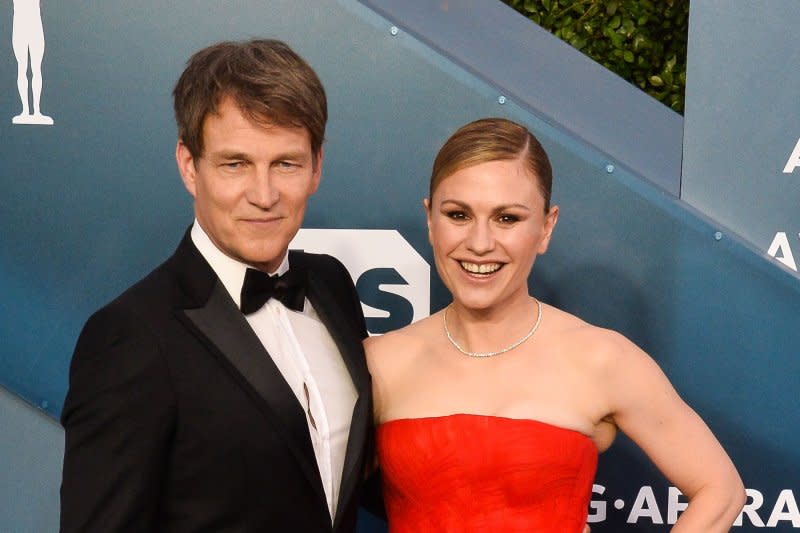
LOS ANGELES, April 4 (UPI) -- Anna Paquin and Stephen Moyer said their latest collaboration, A Bit of Light, in theaters Friday, appealed to their interests in exploring redemption for broken characters.
Moyer, 54, directs and Paquin, 41, stars.
"This sounds really tragic but I enjoy playing broken people," Paquin told UPI in a recent Zoom interview. "Most people can relate to, even if it's not literally straight from your own life, feeling like you are worthless."
Paquin plays Ella, a recovering alcoholic living with her father, Alan (Ray Winstone). Ella has limited visitation with her children due to her alcoholism.
Ella meets 13-year-old Neil (Luca Hogan) at a playground and is surprised Neil wants to strike up a friendship. Moyer said the screenplay by Rebecca Callard moved him in its depiction of Ella depriving herself of any kindness.
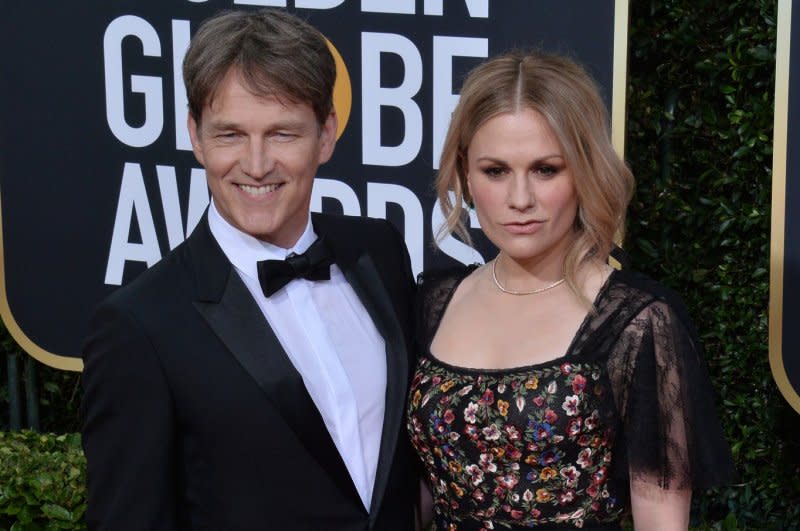
"I was very moved by how broken she was," Moyer said. "Even when somebody tries to lend a hand to her, to give her that little bit of light that would bring her forward, she slaps it away. She's so full of guilt that she can't take it."
Ella neglects the Alcoholics Anonymous meetings she's required to go to and lashes out at Alan when he encourages her to go. Ella also lashes out at her ex-husband and his new fiancee, even when they try to facilitate visits with the children.
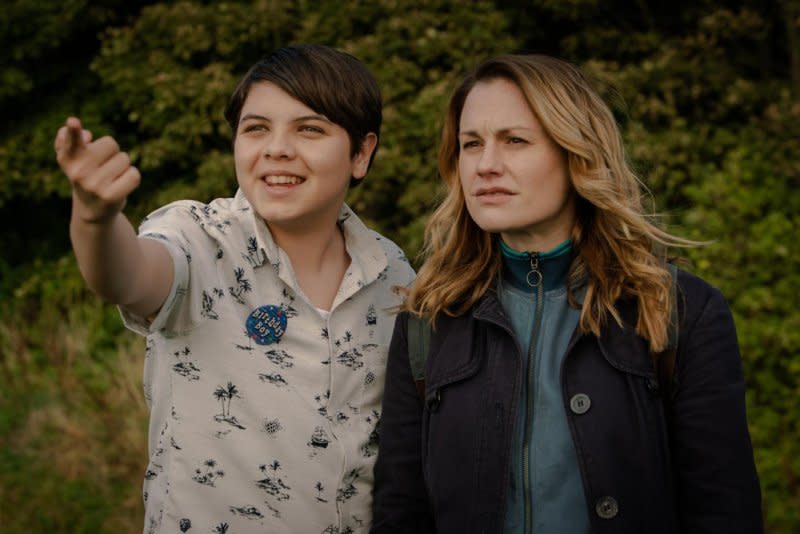
"She does exactly the wrong thing and she knows it, is self-sabotaging and self-loathing," Paquin said. "She just can't help herself."
Moyer said he could understand Ella's behavior.
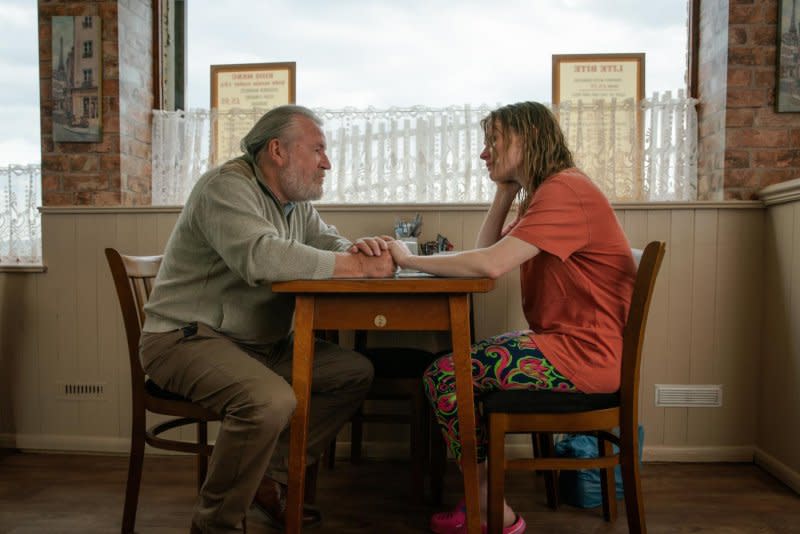
"She's given up on herself, so why would anybody else bother?" Moyer said. "What point is there existing?"
Moyer and Anna also said they appreciated that Neil could be the character who forces Ella to accept kindness. This, they said, offers hope for recovery.
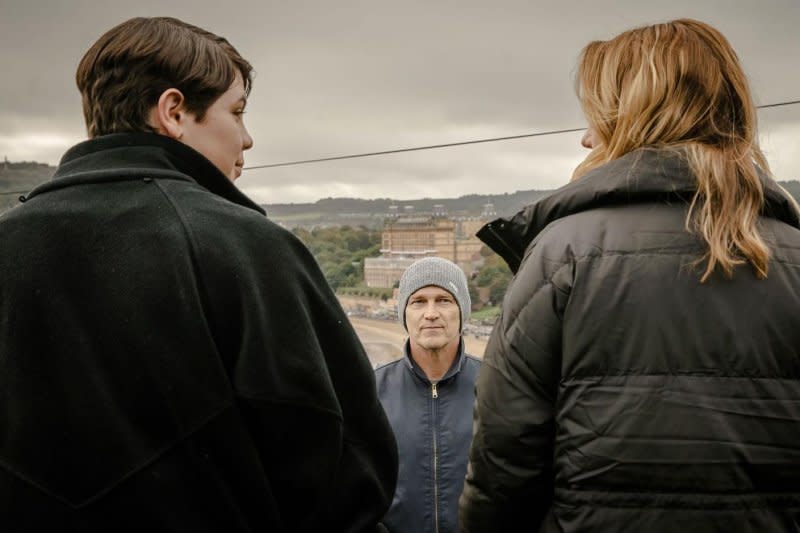
"That's the other thing about playing broken people," Paquin said. "You get to then put them back together."
Moyer said he is sober for 20 years and recognizes that the majority of people in recovery still fall back into addiction. Moyer said he appreciated Callard's idea that a child could be the one to break through Ella's self-destructive habits.
"No matter how hard she tries to push him away, he sees good in her," Moyer said. "He sees a chance. He sees that she can be the person that she is meant to be."
Paquin said Neil is able to see the totality of Ella, whereas other characters focus on her addiction.
"You are not your addiction, illness or disease," Paquin said. "What Neil sees in her is that you might have done some stuff that you are not proud of, or behaved in ways that were not ideal, but that doesn't have to define who you are."
A Bit of Light began as a play written by Callard. Moyer knew Callard from acting together on several British TV series.
Callard sent Moyer the script to her play after the first film he directed, The Parting Glass, premiered at the Edinburgh International Film Festival in 2018. Moyer said the "killer role" for his wife, Paquin, was one of the reasons he wanted to make it a film.
Paquin said Moyer is good at picking material that appeals to them both. Otherwise, she said, she wouldn't agree to star in the films.
Paquin, who won an Oscar at age 11 for her role in The Piano, said she has found other directors sometimes hesitant to give her direction. However, Paquin welcomes feedback.
"Some directors will be a bit more like kid gloves," Paquin said. "Please, just give me a note. It can be a bad note. I just want to try something else."
Moyer had not directed prior to a 2012 episode of True Blood, the show on which he and Paquin also met. Moyer said he still refers to a direction True Blood creator Alan Ball once gave him, when he acts and directs other actors.
"He would say something like, 'Now do this scene as if you're talking to your mother,'" Moyer said. "You'll phrase something differently because you're playing it to somebody else."
Given the complicated issues at the heart of A Bit of Light, the film does not offer conclusive answers. Moyer hopes the film's resolution inspires further discussion.
"I personally don't want the filmmaker to resolve everything for me," Moyer said. "I like having the feelings of, 'What happens next?'"

 Yahoo Movies
Yahoo Movies 
